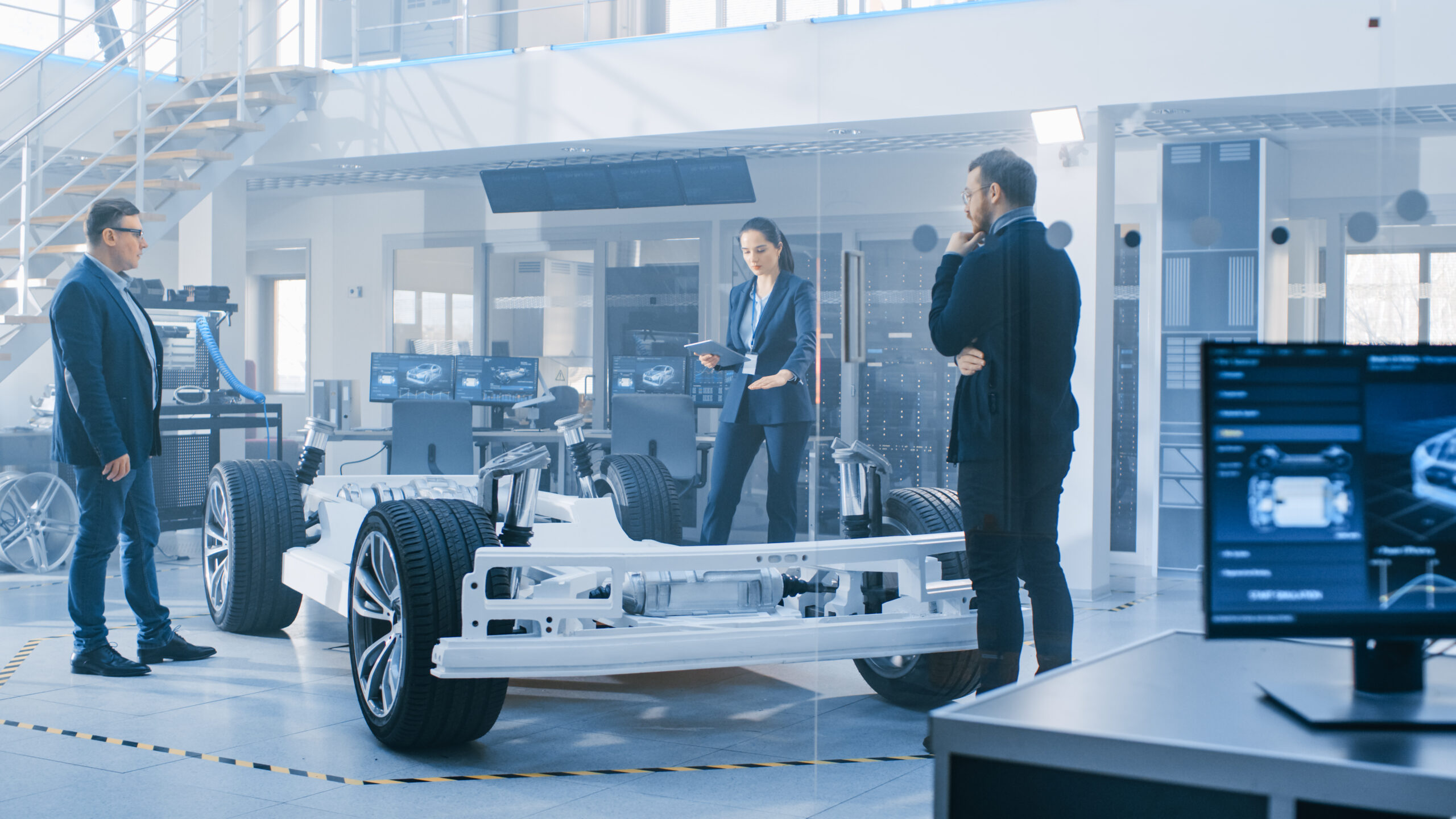
Heat insulation within vehicles has seen many improvements that help to improve the safety and efficiency of automotive transport. The high temperatures that can be reached within combustion engines require strong insulating materials that can combat the heat. Similarly, modern electric vehicles also require high grade insulation, as lithium-ion batteries generate intense heat, especially in the event of a battery failure or thermal runaway.
Insulating materials and technologies have advanced over time, with new solutions being offered to reduce the high temperatures and risk of damage to the vehicle itself and harm to the passengers inside.
Ever since the early production of commercial vehicles, thermal management systems and insulation were key aspects of vehicle design. Safety has always been paramount in automotive manufacturing; if a vehicle had severe risk of temperature damage or passenger harm, it simply wouldn’t sell.
The evolution of this thermal protection, from rigid steel heat shields to innovative mica-based solutions, has resulted in consistent levels of safety with the introduction of new vehicle technologies.
Variation of thermal insulation
Heat insulation comes in multiple forms, depending on the vehicle. Years ago, the only mass manufactured engine was the petroleum-based internal combustion engine, however in recent years we’ve seen the introduction of lithium-ion batteries, and now hydrogen fuel cells.
Each of these involve different challenges for maintaining stable internal temperatures and avoiding thermal runaway. As well as the engines themselves, we’ve seen the introduction of modern components such as charging ports and electric traction motors, all of which require some form of thermal management.
Exhaust heat management in internal combustion engines involves reducing the impact of the high temperatures on the performance and physical wellbeing of a vehicle. The use of thermal sprays, heat wraps, or the commonly used heat shields all help in reducing the temperatures generated by combustion engines. Heat shields protect vehicle components from intense heat and improve insulation, while also cooling engine vents and managing the heat from exhausts. They succeed in this through thermal insulation and radiative cooling.
Rigid steel heat shields were common years ago, however these were eventually replaced by aluminium. Elmelin manufacture mica-based heat shields for automotive use, with mica having exceptional thermal properties making it ideal for high temperature insulation.
Lithium-ion batteries
A major stage in the evolution of automotive heat insulation was the introduction of electric vehicles (EV) to the mass market. The production of commercial EVs suddenly increased as the goals for net zero emissions were set following the continued detrimental effects of fossil fuel emissions on rising global temperatures. Lithium-ion batteries have been known to undergo thermal runaway, a negative feedback loop which results in extreme temperatures and eventually fire or explosion. These batteries therefore require excellent thermal insulation.
Multiple insulating materials exist designed specifically for lithium-ion batteries, including thermal insulation cotton, carbon fibre cotton, ceramic fibre cotton and aerogel. Elmelin produce cut or shaped mica sheet insulation which can be combined with other materials in order to improve insulating performance. An example of this are Elmelin’s compression pads where mica is combined with layers of biosoluble paper bonded with silicone resin in order to form a rigid sheet which maintains pressure on the battery pack. This allows the pack to expand and change shape during operation and resist extreme temperatures.
Fuel cell electric vehicles
Hydrogen fuel is an exciting alternative form of energy to power automotive vehicles. Hydrogen is clean and these fuel cells produce only water vapour, rather than harmful greenhouse gases. While the fuel cells themselves have been developed for many years, we’re still yet to see fuel cell electric vehicles in the mass market for commercial use. This is due to numerous factors including the high costs and difficulty transporting hydrogen as a fuel.
However, due to the recent shift in environmental policies and the targets for net zero being set, we could be seeing the use of hydrogen fuel in electric vehicles on a larger scale in the near future. Fuel cell electric vehicles, similarly to traditional lithium-ion battery vehicles, require high grade insulation to ensure the vehicles remain safe. Hydrogen fuel cells have a risk of combustion due to hydrogen being a highly flammable gas. If there were unforeseen damage to a hydrogen fuel cell vehicle in the form of an accident or collision, then this risk dramatically increases as potential penetration to the fuel cell may lead to hydrogen leakage. Once this occurs, the hydrogen is at risk of coming into contact with an ignition source which will lead to fire and even explosions.
Therefore the insulation used has had to evolve from the types used in combustion engine vehicles. If overheating were to occur, the insulation in place needs to be able to withstand the high temperatures and adapt to any physical changes in the fuel cell. Elmelin help mitigate this hazard by using mica as an insulation material. In various forms, mica can offer thermal management solutions to battery overheating and thermal runaway. Furthermore its use in heat shields can be a way of helping combat the spread of fire within a vehicle.
Conclusion
Automotive heat insulation has seen a rapid increase in innovation over the past decade or two. Traditional petroleum-based combustion engine vehicles saw improvements in the insulation used, with different materials becoming popular for improving thermal safety. In more recent years, the options for insulation have become more varied with the introduction of new forms of engines and fuels, namely electric vehicles. Elmelin’s work in heat insulation for the automotive industry continues to develop efficient thermal management solutions that offer guaranteed safety without compromising on vehicle performance. Get in touch here to find out more about the solutions Elmelin offer.
